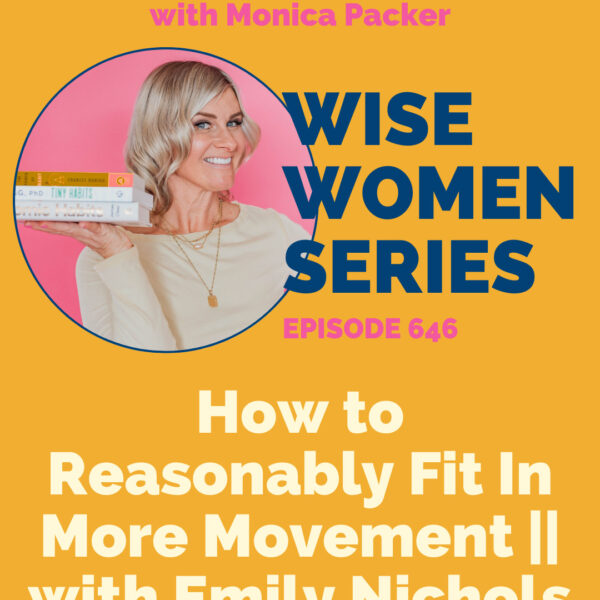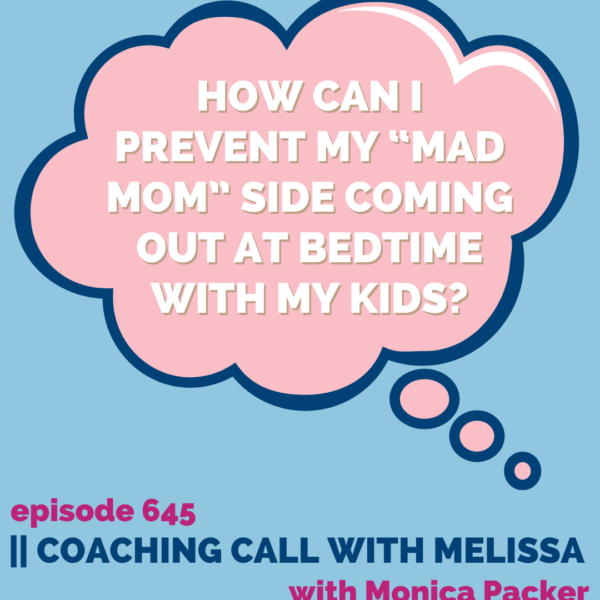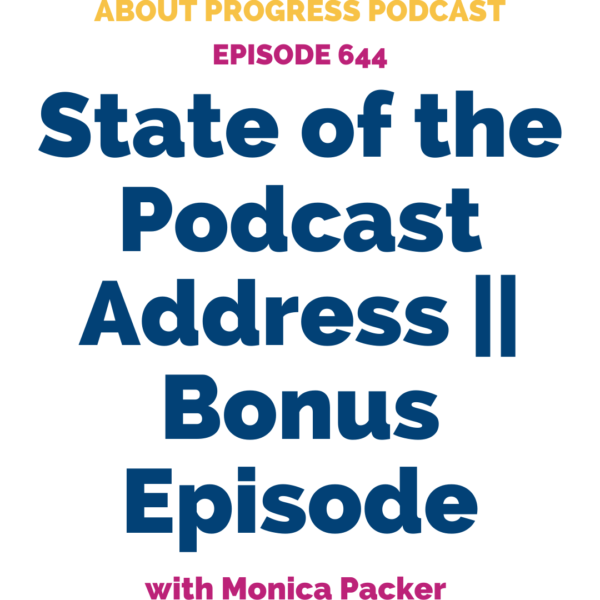How to increase your authenticity by better deepening your connection with yourself, and how that extends to your connection with others.
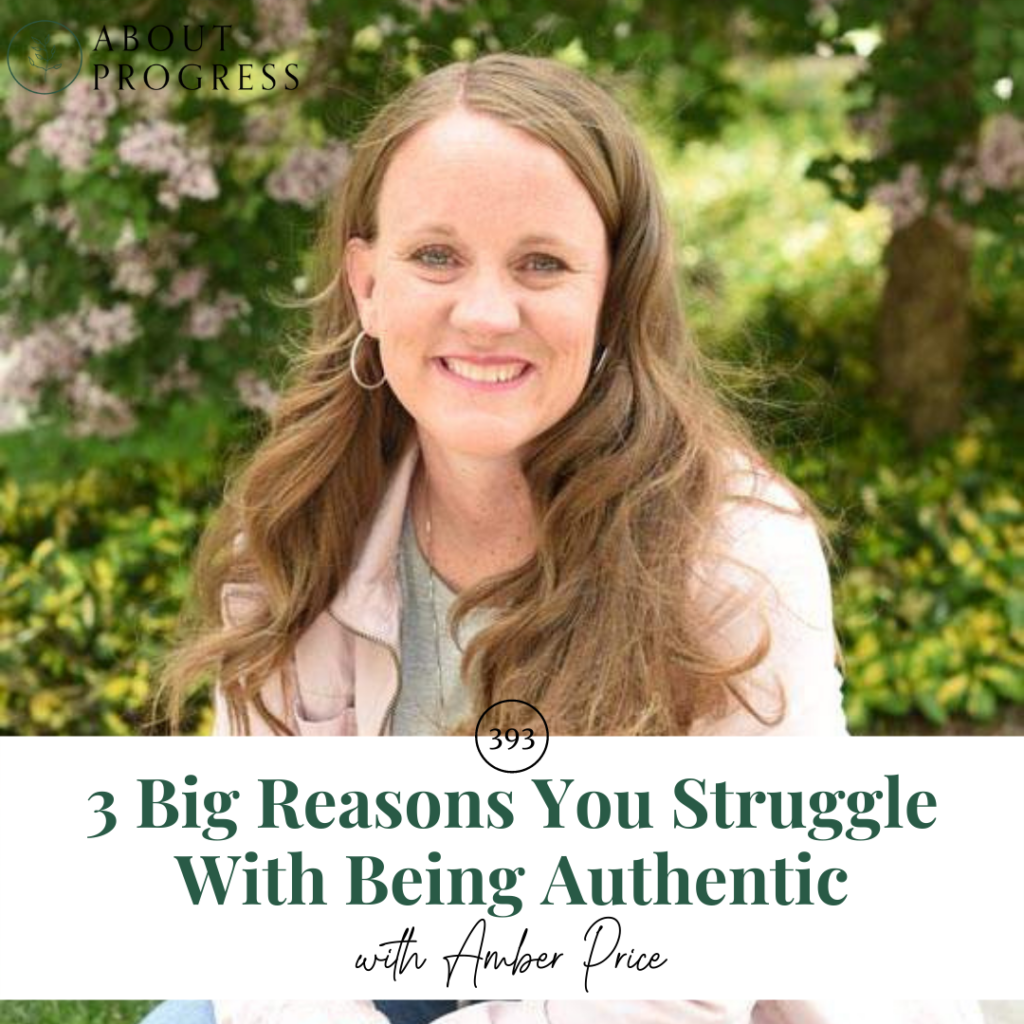
Before you think this is just another flowery conversation on authenticity that seems too far out of reach for you, listen up. First you need to understand what it means to be authentic, and you’re going to want this for yourself: being authentic means you get to stop hiding who you are from other people. With that gift, you can then cultivate meaningful relationships with those around you, and more importantly with yourself.
Amber is a mom of 4 working on her PhD in marriage and family, who loves to share about authenticity and intimacy. She breaks down the biggest barriers to finding your authentic self and the simple ways to work towards breaking them down. Tune in to explore how living up to impossible standards, comparison, and body objectification are hindering your growth, and what you can gain from being authentically you.
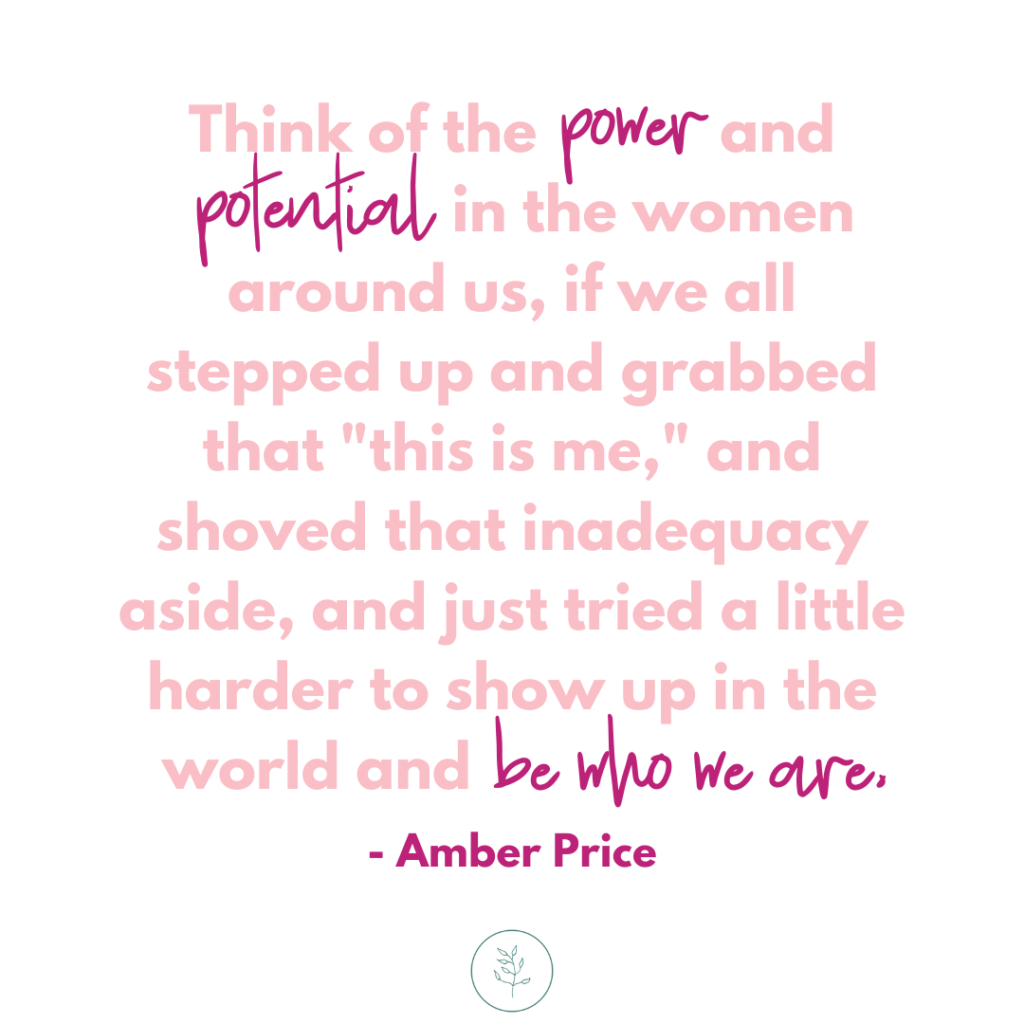
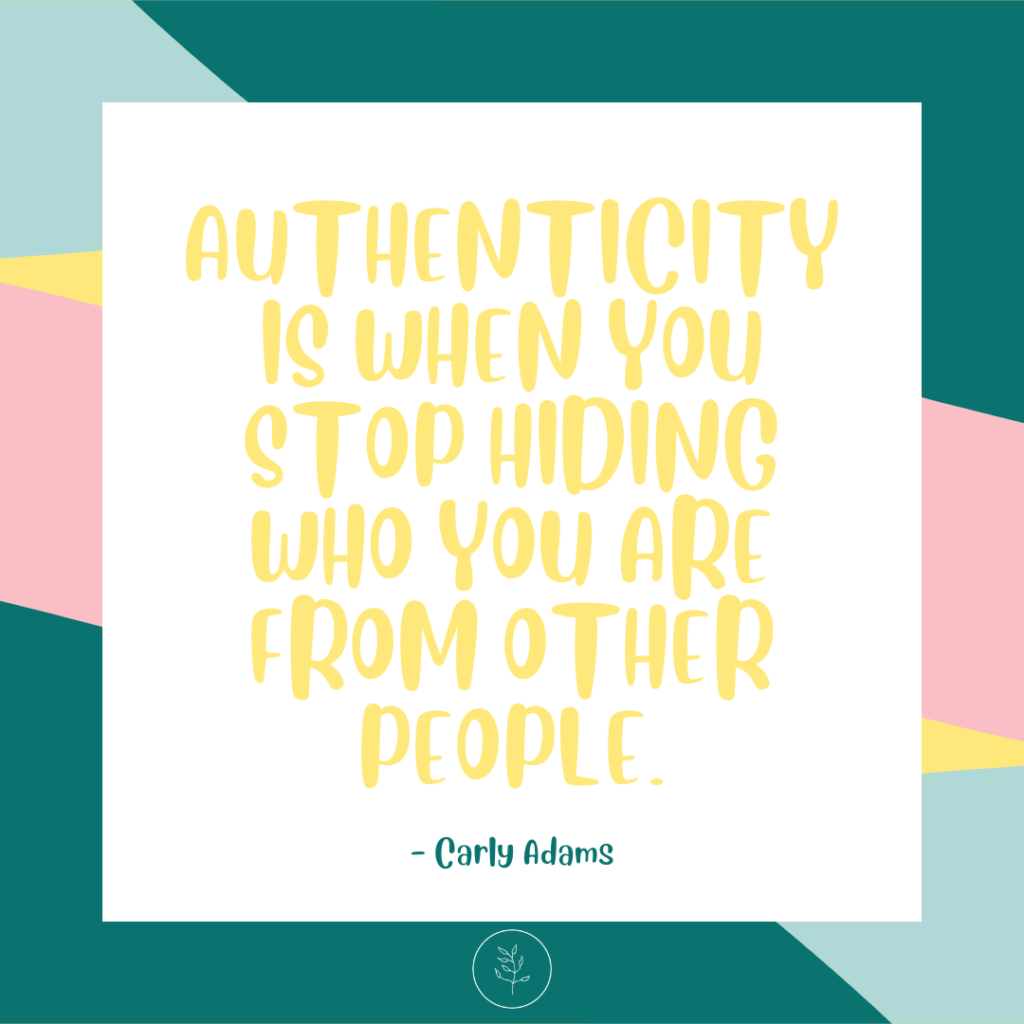
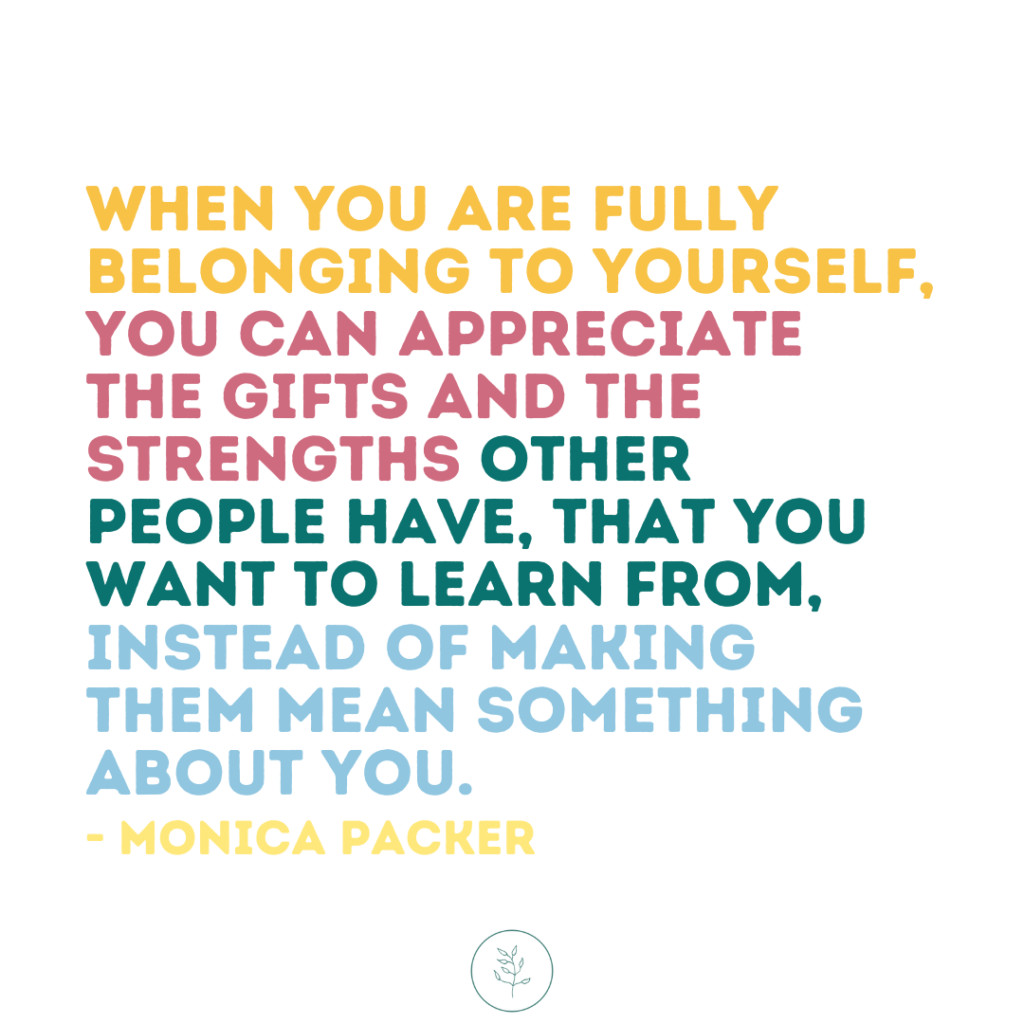
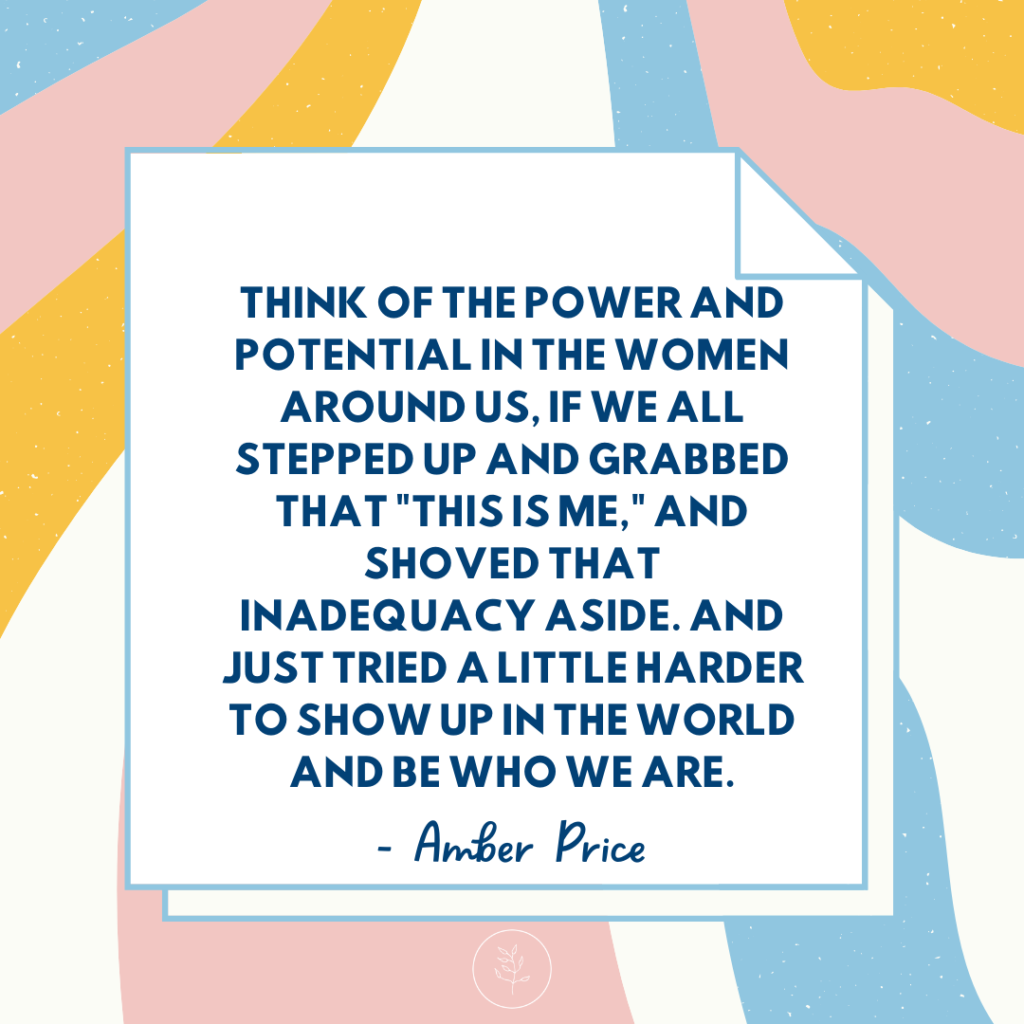
About a few other things…
Reclaim your creative power and rediscover who you actually are! If you’re ready to come back home to yourself, to be able to say that you know who you are and what matters to you, take my foundation course, “Finding Me.” It’s OK that you’ve lost parts of yourself along the way; but as you learn to anchor back into who you are and align your life to what matters to you, you’ll find that you have more strength, more fulfilment, and more creativity to bring to your important roles and responsibilities.
Sign up for the Go Getter Newsletter to get Progress Pointers in your inbox every Tuesday.
You can listen the episode below, or on Apple Podcasts/iTunes, Spotify, Youtube, Overcast, Stitcher, Pocketcasts, or search for “About Progress” wherever you get your podcasts. If you like the show please share it, subscribe, and leave a review!!
SHOW NOTES
My NEW Habit Course
Amber’s worksheet, website, Instagram
My Beautycounter must-haves!
Foundational course, “Finding Me.”
Leave a rating and review for the podcast!
Join the Strive Hive, my monthly membership group
Lend your voice and experience + be featured on the show HERE
Join Monica on Facebook and Instagram
Songs Credit: Pleasant Pictures Music Club
TRANSCRIPT
Monica: Amber Price, welcome to About progress.
Amber: Hi, I’m happy to be here.
Monica: I am really excited to talk about what we’re going to discuss today, because it is a problem that is so rampant, that I think every single woman, no matter her level of confidence is still struggling with this to some degree, and it’s just how to be yourself. And that can come up in a lot of different ways. Why it’s a struggle, like maybe your yourself and your most intimate relationships, but you’re not outside of them or vice versa. Maybe you find that you’re most yourself outside of your nuclear family and within your family, you struggle to be yourself.
We want to feel like ourselves. A grownup word for that is authenticity. And today we’re going to discuss how to increase your authenticity by better deepening your connection with yourself and how that extends to your connection with others.
And I was just curious though, before we dig in to everything you still thoughtfully prepared. Why does this matter to you?
Amber: I think, I mean, what you said is like, we all want to be ourselves, right. It’s no big secret that we w that being authentic is better for us. I think about like Shakespeare said to then own self be true.
Like this is centuries old, like that we know authenticity matters. And I think for myself, I found myself a few years back not really unhappy in my life and not really, I mean, things were fine from an outside perspective, especially things were fine. I, you know, I have good relationship with my husband.
I have good relationship with my kids and things, but things were starting to feel like they were falling a little flat, like. I could just tell that something was a little bit lacking. I needed to increase the connections that I had in my relationship with my family and with friends and things. And I think I needed to stretch myself a little.
I didn’t know that that’s what it was at the time probably, but I just needed to stretch myself a little. And so I kind of decided to challenge myself. I had a get out of my comfort zone month that I actually, I CA I called it that I think that’s actually, the month I came to your workshop.
One of your workshops you did, that was maybe one of my, like, get out of your comfort zone and yeah. But by the end of that month, I had applied to go back to graduate school, which I had never seen coming. And it just started me on this path of kind of finding myself a little bit better, understanding myself for the first time in a while I was starting to feel really more authentic.
Like I was living my authentic life and it’s just so satisfying. And so I think I just really want to help other women find that because it feels so right. I have to say though, it’s not easy. Not, not any piece of this has been easy. I feel stretched every single day and yet, because it’s authentic, it feels right. And it feels good.
Monica: I usually call that the good kind of hard. Yeah. You know, and you said discomfort several times. I feel like there’s a good kind of discomfort zone for us to lean into that stretches ourselves, but in ways where we are uncovering and discovering who we are, and once we have those, I mean, you just talked about. You’re more fulfilled. Right. And absolutely anything else you can add? Like, what are the benefits of a feeling like your authentic self?
Amber: I think, and they, and I’m sure we’ll talk more about this throughout this podcast, but I think one of the biggest things is that you stop hiding who you are from other people, you know, if you’re not being authentic, it’s usually because you feel like you’re not measuring up to what you think you quote unquote should be.
And so you kind of hide who you are and then you can’t connect as easily with people. You know, if you think about people who, you probably know people in your life who you feel like aren’t showing you their full, real, authentic self. And it’s a lot harder to form a connection with those people because you’re not really seeing who they are, but somebody who is willing to show you who they are, even the stuff that’s not pretty, you know, the things they struggle with.
That’s when you form a connection with somebody. So to me, that’s the best part of authenticity. It’s just the relationships and connection that you can form as you are more authentic,
Monica: you know, when you’re more full of yourself, you have more to give from, and it feels different too. I feel like you have like a different capacity to give.
Absolutely. When you are more fully
Amber: yourself and you’re choosing it for yourself more, you’re not doing it because you should, or because you’re supposed to do, but you’re choosing that you want to give or share connect.
Monica: Yeah. There’s a collective of women who are discovering this, this fact of what a gift it is to be your authentic self.
So let’s talk about what is in the way, and this is actually going to be the bulk of our, of our discussion today is why is this happening? And like I said, early on in our interview is, it’s so rampant. And yet it’s also so confusing because it’s different for each person, why this is happening and you’re going to break this down for us in ways I think are going to open women’s eyes, but also revolutionize how they are going to see their potential to get past these barriers. So let’s start by, by hearing what you think the first way that women commonly do that?
Amber: Yeah. Like you said, I think we all know we should be breaking down whatever it is.
That’s keeping us from being authentic, but we don’t always see it. And I think one of the biggest ways we do that is sort of this idea of idealized standards that we’re trying to live up to the technical term from a research end is externalized self perception. And I think of that as like I’m letting other people decide who I am.
I’m letting other people tell me if I’m worthy or valuable or what I should act like or who I should be. That’s absolutely rampant like you were saying. We just, we have so much information coming at us every single day that tells us what we quote unquote should be doing or what we, again, quote unquote, supposed to be like, you know, with we could list a million social media, your friends or your family or your parents or whoever that’s telling you, oh, you should be doing this or you should be doing that. I think beyond that though, a lot of times it’s not even people explicitly telling us that it’s, that we think people think we should be acting that way.
Monica: I just had never heard that term externalized self perception. So you’re saying we can often think upwhat we think people want us to do, and that becomes a way we view ourselves. And then you were saying, then we’re trying to uphold it.
Amber: Yeah. We’re trying to live up to the standards that we think other people have for us. Like, oh, I, you know, I mean, I think the example of what makes a good mom is a, is a really concrete and good example. Think of, I mean, how many things could you list that moms think they need to be doing in order to be a good mom. You know, if my house isn’t clean, I’m not a good mom. If I haven’t cooked a healthy meal, three meals a day, a hot breakfast, or, you know, put a cute little note in my kids’ lunch box or was there to give them a big hug when they came home from school, or I didn’t know how to do the fourth grade math assignment or.
Honestly, the list could go on and on and on and on. And we get it in our minds. That that’s what it means to be a good mom. And we try to live up to all of those standards and it’s completely impossible. No mom can do that. And I think in reality, other moms, we don’t judge each other on those terms that we think we do.
You know, if I tell you right now, About 10 feet away from me is a pile of laundry that needs to be folded and put away. You’re not thinking, oh, my word, you’re such a bad mom, because you haven’t done that. And yet in our minds, we tell ourselves that right, you go, oh, I should’ve had that taken care of. I should be more on top of things.
And that just brings us down.
Monica: Yeah. Yeah. I see that even, you know, in the most advanced levels of authenticity that those sheds creep in so easily. And I’m just, you know, realizing ideals are endless. Yeah. That’s the biggest problem with them as they are. So they will never go away and they will never, we will never get to the point where we are enough to meet.
Amber: Yeah. If you’re pleasing one person you’re not pleasing the next person. If, if you’re trying to live up to somebody else’s ideals or standards. And it’s hard not to do it.
I find myself doing it in the last couple of weeks. I’ve been just a little more stressed and frazzled and things. And when I stop and pay attention to it, I’m like, oh, I’m doing it again. I’m putting these standards for myself that are unrealistic and I know that, and yet I slip into it easily and I have to catch myself and say, what are you doing?
You know, what is it that, why are you doing what you’re doing? Is that really how you want to be living is that, you know, is that really what matters?
If you’re not living up to what you think other people’s ideals are, then you don’t want to let other people know you or see you.
Right. If they can really see who I was, they wouldn’t like me. I’m falling short of what I think they want me to be. And so I’m going to just kind of wall off or drive myself crazy, trying to live up to these ideals that nobody can live up to. And like you said, anxiety, depression’s really associated with this. It can harm your relationship, your romantic, your sexual relationships. It can harm your friendships, your parenting. I mean, the list goes on and on, right. It’s it’s just harmful to us and it doesn’t feel good.
Monica: I don’t think I was ever less connected to myself and to others than when I was at the height of me hiding behind the shield of perfectionism, which is really just a giant shield of sheds and ideals.
And for me, it was easier to be the unapproachable person up on a pedestal and still be the opposite of vulnerable. And reachable and connected instead of feeling like I wasn’t meeting instead of hiding away from the sheds and the balking from them. And that to me was a lesser thing. I want it to be removed from people because I was not doing well enough so I can see how that goes across,
Amber: right?
Yeah. Yeah. It could go both ways. Yeah.
Monica: Okay. So this one’s fascinating. So trying to live up to impossible standards, what’s another way that we do this.
Amber: So comparison comparison is one that’s pretty familiar, like no need to define that word. I’d like to kind of think of like what we just talked about, the kind of the externalized self perception.
We’re kind of, it’s kind of a form of comparison because we’re comparing ourselves against these idealized standards. But comparison itself is really looking at other people and directly comparing ourselves with them. And we all know we do this, but the research shows that we do this almost constantly.
And we don’t necessarily realize that like every time you’re looking around at other people, you’re probably comparing in your mind. And again, it’s super harmful. It’s not, it’s not beneficial in most ways.
Monica: And is that like scientific, like, do we just do that as humans? Like, we’re just trying to scan where our places and where we are at a proverbial light up.
Yeah.
Amber: And I think at some level it is important to know like some comparison is normal and natural. I think, you know, if you think about a kid, especially trying to learn who they are or a teenager, you know, as we’re kind of forming our identity of course you’re going to do some comparison and that’s how you learn.
What you’re like, because other people are not like that. You know, I, I talk about I love to bake cookies are my favorite thing to bake and I can learn from paying attention to other people that not everyone is a baker. I’m a baker. Many of my neighbors don’t bake cookies on the regular. So a little bit in that comparison way, I can learn that I am a baker.
On the other hand, I can look at the art that I try to, I don’t try to do art because I’ve learned, but if I tried to do art. I am not good at it. And I can learn through comparison with others that this isn’t my strength and that’s okay. You know? So in some ways we do learn through comparison, but I think in this world where there’s so much information coming at us, and if we’re trying again to compare with all of those different things that are coming at us, oh man, we’re going to fall short in so many ways. If, if that’s what our sense of self is founded on, you know, how do I measure up to other people?
Monica: I feel like this comparison is so faulty because it’s like, you are simultaneously comparing yourself to see if you belong, if you’re good enough to belong, but also trying to compare yourself to see if you can be on that kind of pedestal I was talking about too, you know, and other ways, so, and either way, you’re just constantly, you know, getting like ping-ponged around in your own brain about where you stand, instead of standing in yourself.
Amber: Yeah. And there are two types of comparison. I think you’ve just kinda mentioned, you know, there’s upward comparison where you’re like, oh, I’m not measuring up to other people’s standards, she such a better mom than I am, or she looks so much better than I do, or, you know, whatever it is, a whole long list of things that we think we’re falling short on. And then on the flip side, there’s downward comparison where we look down on people and think, oh, I’m totally doing life better than she is.
Or, you know, I would never treat my kid that way or, you know, whatever it is, neither of those things is helpful. But, and we do both and
Monica: it’s the opposite of authenticity really is what the heart of this problem is. It’s it’s, it’s just, like we said, the ping pong, like you’ll, you’re never going to feel like you belong.
Amber: Yeah. And because again, because you’re constantly looking to other people to tell you. Whether you are, whether you’re worthy or whether you matter, are you measuring up and things. So again, you know, if you’re not, then, oh boy, I better hide who I am. Or, or like you were saying, you know, you’re going to put yourself on that pedestal and think you’re above other people. And again, that’s going to harm your connections and things with them.
Monica: And the fall from that is pretty far. Yeah, it’s pretty hard when you fall off that pedestal too. Do you have an example of this? What did this look like for you? Yeah,
Amber: I, I love to share this example because I think it’s so silly and it drives me absolutely crazy that I do it, but I have absolutely done this recently.
I’m in school right now. I’m in graduate school. And so the way that school is now, this is not how it was 20 years ago when I was originally in school. But you can log in to all of your classes and you can see your grades. But the thing is you can see how you compare to other people.
So if I were to get, say a 92, On an assignment you might think, well, that’s a really good score. And I might think that too, unless I log in to the computer and I see, oh, my word, that was the lowest score in the class. You know, everyone else got 93 and 95 and 97. And now all of a sudden I feel bad about the score that I got.
That was perfectly good. If I wasn’t actually comparing with other people. It’s so hard to resist, but I want to see how I measured up. I want to see like, oh, but if the 92 is the high score, now I feel amazing, but it’s not helpful. I got the score I got, I learned what I learned, you know, I did what I did, but we just are drawn to that.
Need to compare.
Monica: Hmm. So I know we’re going to talk more about authenticity too, but I just feel like, you know, how do we, how do we do the balanced good kind of compares or just natural comparison? What does it look like to be in that space where you can naturally compare yourself, but still feel like you belong to yourself. Is there a balance?
Amber: There is one form of comparison beyond this that they do that like research shows is a little bit helpful in that it’s like when you in your own mind are comparing with somebody, who’s just a little bit ahead of you in where you want to be. So you’re just looking to somebody and saying, oh, I really like how, for example, that mom is parenting her kids, I would like to do a little bit better.
And maybe that’s just an example of how to do it. So it’s not really like pitting yourself against that person. It’s more of just having kind of a role model, but that could kind of fall under comparing. If it’s beyond that, it’s probably not doing you a lot of good at this point. And
Monica: so, so it’s more of like a tendency, it’s just like a tendency to be aware of because we all do it to some extent, like you said. Yeah, so, and I like that, that one good kind though to me is so opposite of jealousy, but I really like that. Just being able to appreciate the goodness you see in others, Which only happens when you are fully belonging to yourself, can you fully appreciate the gifts and the strengths of other people have that you want to learn from instead of making them mean something about you?
And when
Amber: you’re comfortable knowing that you’re not perfect yet, it’s okay. That you’re not perfect. Yeah. Authenticity is a lot about. Recognizing your own weaknesses too, and being fine with that. I have weaknesses. Yeah. And I recognize what they are and I want to grow and I want to do better, but that doesn’t have to equal perfection.
Monica: It’s kind of like seeing yourself with more of a compassionate lens and allowing, allowing the process and life to help you gradually refine what you want to those strengths. I love hearing that.
Okay. You have a third one for us. I think it might be my favorite one because people, I don’t think even think about this.
Amber: Oh, and it’s so pervasive. So the third one would be just the way we view our bodies, body image and things. And I think this one fits under both of the other two that we talked about. You know, we have idealized standards for what are. Quote, unquote should look like, and we also compare our bodies with other peoples, and this is so, so prevalent with women.
We have this idea that our body equals our worth. And so I’ve got to look a certain way. And if I don’t look like the people that I’m seeing around me specifically on media and things like that, then I’m falling short and it just becomes this vicious cycle in our brains. That brings us.
Monica: I think we all know the danger of this misplacement of identity.
I think we know it logically, but can you paint a picture of. The research is showing about how this is actually damaging and damaging us as women. And it’s really pretty disturbing the
Amber: the research specifically around body image. You mean? Yeah. Yeah. I mean, there is so much, this is one of my favorite areas to research and I say favorite, but also most aggravating because I’m so frustrated that this is what women are faced with and not just women, it’s starting to happen more and more for men also.
But You know, one research statistic that really stands out to me as that 98% of the models and actresses that we see fall well beyond the underweight category, you know, we’re talking, eating disorder kind of thing. And yet that’s what we see portrayed in front of us. And we think, oh, that’s what my body is supposed to look like.
I was thinking about it this morning. I was thinking, you know, friends is a very popular show. And if you compare your body against the women who are shown on that show, Ooh, for a lot of us, you’re not measuring up. If that’s the ideal and boy that gets in your brain, I struggle with it a lot too.
It gets in your brain and it just can eat at you. And you know, I have to often remind myself. Oh, when I’m looking at my body, I’m, I’m comparing against something. If I look at my body and I feel like it’s falling short, it’s usually because I’m comparing against somebody else’s or, or against an idealized standard.
And that’s not helpful.
Monica: So what does objectification even mean? I just want to make sure women understand what this one.
Amber: Yes. Yeah. So objectification itself is just treating something or someone like an object rather than as a human being. This is more of kind of a classic traditional, the male gaze men, treating women like an object. And that is still something that happens a lot, but what’s actually more damaging a self objectification, which is when you start to do that to yourself. And I think a lot of us most. I think probably more than 90% of women are doing that.
And it’s where you start to try to view yourself as an outsider views you. So you’re trying to see, like, what do I look like when I’m doing this? Or, you know, you’re trying to take that external perspective and look at yourself to see what you look like doing it. And that’s super harmful. I love to go to Zumba class at the gym is my favorite and I go to the rec center and I love the rec center because you’ve got all walks of life there.
You’ve got every age, you’ve got different races and different abilities and different weights. And I just love, love, love that part of it. I am not necessarily a dancer. I love to dance, but I’m not like a trained dancer or anything. Why I love Zumba and I love to just go and dance and have a good time.
But I’ve noticed that there’s times where I’ll start to kind of slip outside of my own body and start to think about what I look like while I’m dancing or watch myself in the mirror. And they almost always mess up when I do that. And I think it’s because you just step outside of yourself and you’re no longer experiencing your body from within. You’re doing that self objectification thing, watching, trying to see what you look like and it, it throws you off.
Monica: And I’m thinking about Just how damaging this is, because it becomes such an internalized way of viewing ourselves and speaking to ourselves and just like the media so easily objectifies and sexualizes women, how we internalize and do that to ourselves and where we’re seeing our value is replaced by our appearance.
Yeah. And, and that’s not ever going to get better. I mean, the older we get, I mean, that’s just the fact, you know, that’s how it’s going to be. And I’m, you know, as you’re describing that Zumba story, One of the most heartbreaking regrets of my life is that I stopped dancing because of this objectification of myself and how after 14 years of dancing, I could not look at myself in the mirror anymore while I was dancing.
It stole not just my joy of dancing, which was such a huge part of my life, it actually stole my ability. By the end of my dancing time. Yeah. I was dancing worse and worse and worse. It was like I was backsliding, but we’re doing that to our lives where we’re not able to show up, to be present, to lean into the experiences, the relationships, and even to develop our strengths, because this is a barrier that we’re constantly not only putting in front of ourselves, but is being put in front of usby the world around us.
Amber: Yeah. Yeah. And I mean, we’ve kind of touched on, or at least in my mind, we’ve touched on the weight aspect of it, but it goes so far beyond weight. It’s, you know, what, what does your skin look like? What does your hair look like? And I mean, we’re talking hair all over your body. What do your boobs look like?
What do your, even your genitals look like? You know, it’s everything, it’s your whole body is under scrutiny it feels like by the people around you and then ultimately by yourself. And it’s just so harmful.
Monica: I feel like if we were to truly pinpoint one of the biggest deterrents to women being themselves and by extension of that changing the world, I think being an influence in the world to me, it’s this.
Yeah,
Amber: I agree really is a huge one. And it’s, and it’s the one that shows up in the media. So often in media, it’s such a big part of our lives now that it’s hard to escape.
Monica: And we thought it was even 20 years ago, you know, like I remember taking that class at BYU where you got to see all the ways that they altered ads, you know, advertisements and how mind blowing that was. And that was 20 years ago.
Amber: Yeah. And now we have Instagram where we can do it ourselves too. You know, we can put that filter on or only post the pictures that make us look the most flattering or things like that. And then we compare ourselves against everybody else’s idealistic version of themselves and things.
Monica: As hard as it is to face these ways that we misplace ourselves, how we lose ourselves. I think it’s so important because knowledge is power. You know, that that is the way that we can actually move on from here. And many women are listing and they’re able to recognize the ways that they do this. And honestly, even, even someone who has been teaching identity and working on our own identity for years, I see myself still doing each of these three things.
We don’t want to leave them in a place where they’re like almost depressed. So can you give us some hope of, of what this can look like to still kind of have these tendencies? And how to still be feeling like you are more of your authentic self, and that can look like.
Amber: Two things come to mind with that.
And the first is simply taking time to stop and notice when you’re doing these things. Don’t beat yourself up for it, but just start to pay attention to it as you do. You know, I said earlier in this that I noticed it in myself in the last few weeks. And like you said, I’ve been immersed in this for years studying this at school.
And I still catch myself doing it. It’s totally normal. It’s something you’re always going to fight against and that’s okay. But I think the more that you can catch yourself doing it, the less you’ll do it. And the more confident you start to feel about yourself. And I think kind of, for me, at least breaking it down by those three different categories and there’s others, this isn’t like all encompassing, but oh, right now I’m comparing.
Or right now I’m, you know, my body image is struggling or things and, and challenging yourself on that. And actually this just popped into my head and I’ve actually heard you Monica talk about it, but you know, thinking about if you were a child, if you know, if you’re talking to your child self, how would you talk to your child self about your body or about how you’re measuring up?
If things like that, you know, take time to give yourself grace on these things, recognize that you’re doing them, but then give yourself grace on it and allow for growth. One of the, one of my favorite parts about self-compassion research that’s out there is that it’s a, it’s a. Almost like a yin yang kind of a situation where you’re pressuring yourself to grow, but you’re also giving yourself grace.
And those two things have to go hand in hand. But second, I love to think about you know, when the greatest showman came out years ago, that song, “this is me,” it was so popular and it resonated with so many people, I think because we all long to feel that way where all of a sudden the bearded lady is like, you know what?
I have been doing all of these things that we’ve mentioned, right? Like hiding who I am, because I’m not measuring up to these externalized standards or I don’t compare well to others or, I mean, body image, hello, she’s got a beard. Right. And she throws those things aside and she just declares. This is me. And I love some of the words in it. Like she’s bruised and broken, and she recognizes that in herself, but she says it doesn’t matter. This is who I am. I’m going to step forward and be who I am and feel okay about that and sing and dance about it in that case, you know, and bring other people along for the ride.
I just love that idea. And I think we can all do a little bit more of that. Figure out who you are and how you can be confident in who you are and recognizing that you’re bruised and broken and it’s OK.
Monica: And this is how we can lean into that good kind of discomfort. We talked about. I had Dr. Lexi kite on the show and her sister Lindsay years ago, and one of them recently last year.
And one of the things I love that they say is, prove yourself wrong. You know, and it doesn’t mean you betray yourself. It’s not about self betrayal and like pushing yourself to the extremes that are not healthy either, but it’s challenging yourself. To practice, compassion, like you said. Yeah. On yourself and trying things anyway, or putting yourself out there anyway, or being honest anyway, with someone or letting someone in when you were talking about compassion, I looked at each of those tendencies that you shared.
Compassion isn’t in any of them. Right? So that’s what I love about this is that’s probably our number one tool is, and navigating these tendencies is when they come up is having compassion. And as we insert compassion into these tendencies, I think that’s where they lose their control. Yeah, I like that.
Amber: And when you said, you know, prove yourself wrong, it’s really just that internal voice. That’s like. Nagging you in the back of your brain that you need to prove wrong. I think deep down, maybe, maybe, you know, better, but we get that voice in our minds and shoving that out with that compassionate side is much more helpful.
Monica: One of my weird goals with this podcast is to help women get off the sidelines of their own lives. And this to me, which I honestly think is the most detrimental and also the most common way that women are still bound by perfectionism is sitting on the sidelines waiting and everything you shared today helped me recenter on that mission and, and that this is what we need to do as women.
We need to prove ourselves wrong in those voices, wrong inside of ourselves and, and have compassion and, and, and try. And just show up and try to belong to ourselves that we can belong to others. Anything else you would add to that?
Amber: Yeah, I just, i, I, I wouldn’t call that a weird goal that you just said.
That’s exactly my goal too. I just see it. I see so much power and potential in the women around me and I see them not always using it because they don’t think they measure up. I, I sat in a group of women recently who talked about why they don’t get out of themselves and go, you know, serve their neighbor, whatever.
And inadequacy was the thing that like, it was the underlying theme in this discussion. And I just thought, oh, these women are so beautiful and capable and strong and wonderful. But they’re sitting at home feeling inadequate sometimes and not reaching out to their neighbor or their friend because, oh, I might say the wrong thing or I might do the wrong thing.
And it’s hard. I, right after that conversation, I found myself like needing to reach out to somebody and thinking it would be easier not to, you know, like it is scary. I might say the wrong thing. I might be wrong. But think of the power and potential in the women around us, if we all stepped up and, and grabbed that “this is me” and shoved that inadequacy aside and just tried a little harder to show up in the world and be who we are.
Monica: I think the world would change. And that’s my biggest mission teams find
Amber: to run the same mission.
Monica: I love it.
Are there any resources that you have that would help women get started on this?
Amber: Yeah, I’m going to put together a worksheet that will be available for about progress listeners.
I’ll break it down so that you can kind of challenge yourself on each of these three areas and maybe take a little bit of time to consider how you already know you’re doing it and maybe pay attention to how you’re doing it in the coming weeks. And then maybe find what some of the things that you love about yourself and the things that you want to really lean into.
And I’ll put that on my site. So Amberaprice.com/aboutprogress and that’ll just be available there for free download
We’ll link that too.
Monica: So Amber, you’re remarkable, I I’m so amazed by you T tell people what you’re up to right now, instead of going to grad school, but they’ll hear me share more in the intro, but tell them what you’re studying and where they can find you and look at stuff.
Amber: Yeah. I went back to get my, so I’m a, okay. Since everyone can’t see me, I’m a, almost 43 year old mom of four boys. And Decided just a handful of years ago to go back to school, which was super scary, but got my master’s degree in marriage, family and human development last April. And now I’m working on my PhD in the same field.
And specifically, I mean, if it wasn’t clear here, but my focus is authenticity and intimacy and how those two go hand in hand and. Basically everything we’ve talked about here is what I’m studying. So I’ve got a website it’s just Amberaprice.com. It’s got a lot of articles on it about this and related topics.
I’m on Instagram at Amber dot a dot price. And then in may, I’m launching, hopefully I’m telling myself may I’m launching a course that’ll be called authentically you. And it will dig deep into these three areas and a couple others that I see that we hinder our own authenticity and then just kind of help help you through how to grow out of that and how to be your full self in a better way. And to have those connections in your relationships.
Monica: I love having this preview to your course, so we’ll make sure that we lead people to follow you so that way they can be the first and they’ll know when that course is ready to be launched. And I’m so excited for it. And I’m really grateful that you were here today.
Amber: Thank you.
